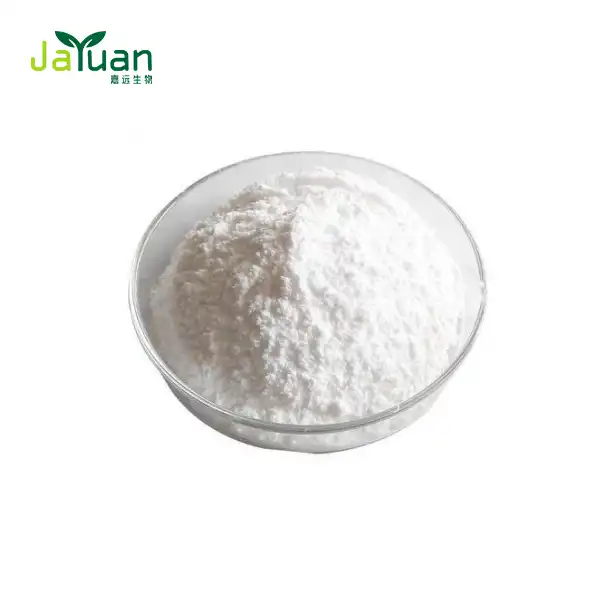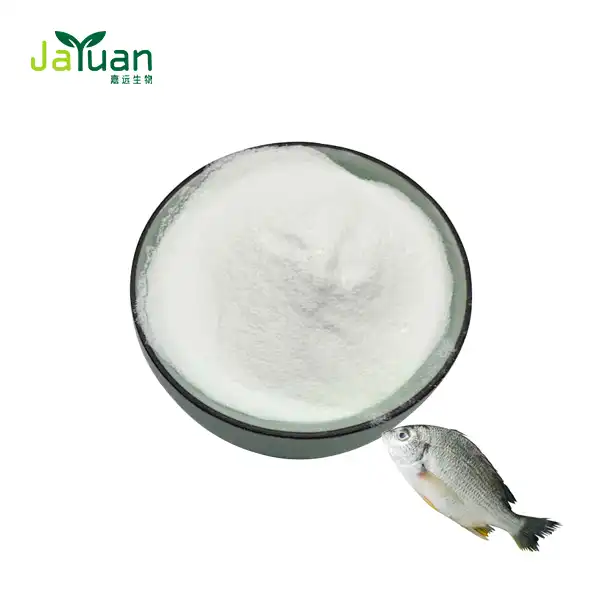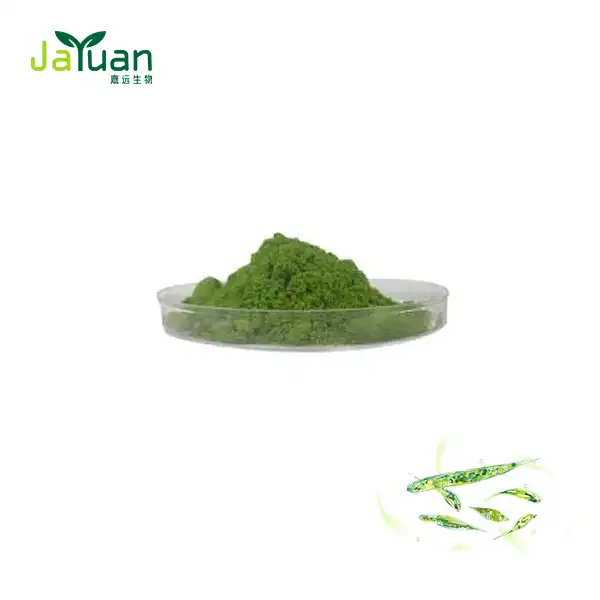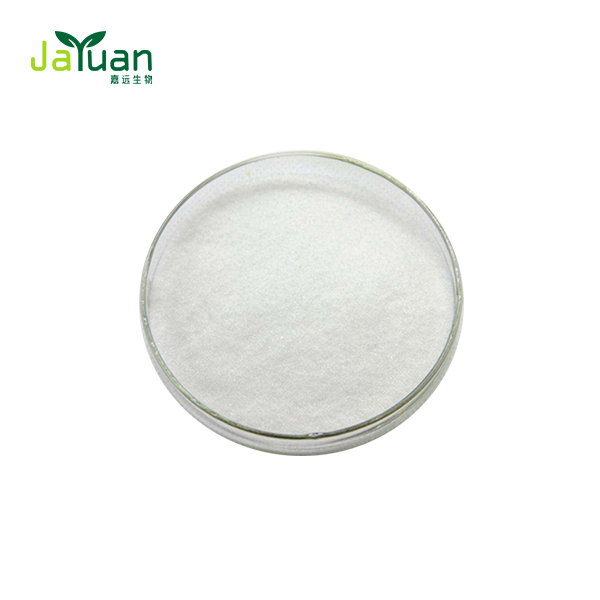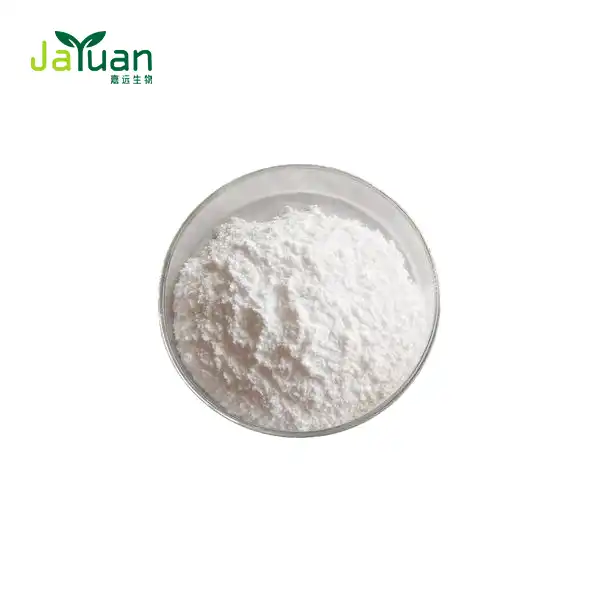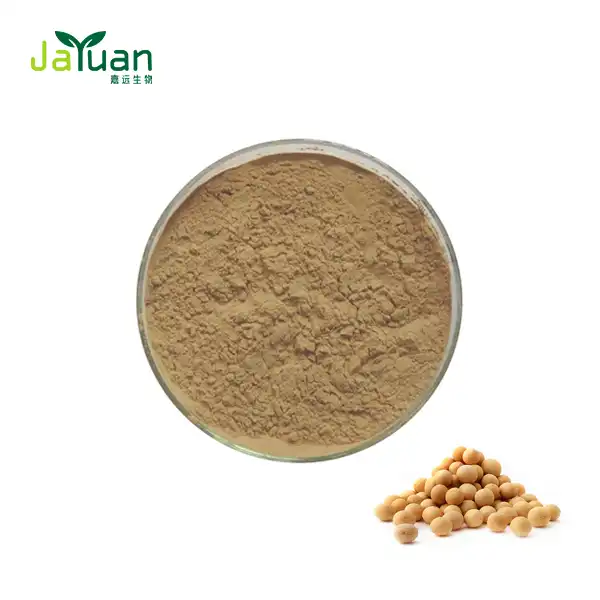What are the potential side effects of using Fibraurea recisa Pierre extract?
Fibraurea recisa Pierre extract, also known as Huangteng extract, has gained popularity in recent years due to its numerous potential health benefits. However, like any herbal supplement, it's crucial to understand its potential side effects and interactions before incorporating it into your wellness routine. This comprehensive guide will delve into the world of Fibraurea recisa Pierre extract, exploring its uses, common side effects, and potential interactions with other medications.

Understanding Fibraurea recisa: Overview and Uses
Fibraurea recisa Pierre is a plant species belonging to the Menispermaceae family. The extract derived from its dried stem has been utilized in traditional medicine for centuries, particularly in certain Asian countries. The primary active compound in Fibraurea recisa Pierre extract is palmatine, an isoquinoline alkaloid with a distinctive yellow needle-like crystalline structure.
This extract has garnered attention for its diverse range of potential health benefits, including:
- Anti-inflammatory properties
- Antibacterial effects
- Antioxidant capabilities
- Digestive health support
- Potential cognitive function enhancement
- Immune system fortification
While these benefits are promising, it's essential to approach the use of Fibraurea recisa Pierre extract with caution and awareness of its potential side effects.
Common Side Effects: What Users Should Be Aware Of
As with any natural supplement, Fibraurea recisa Pierre extract may cause side effects in some individuals. It's important to note that not everyone will experience these side effects, and their severity can vary from person to person. Here are some of the most commonly reported side effects:
Gastrointestinal Discomfort
One of the most frequently reported side effects of Fibraurea recisa Pierre extract is gastrointestinal discomfort. This can manifest in various ways, including:
- Nausea
- Vomiting
- Stomach cramps
- Diarrhea
- Constipation
These symptoms are often dose-dependent, meaning they're more likely to occur when consuming higher amounts of the extract. To mitigate these effects, it's advisable to start with a lower dose and gradually increase it as your body adjusts.
Allergic Reactions
While rare, some individuals may experience allergic reactions to Fibraurea recisa Pierre extract. Symptoms of an allergic reaction can include:
- Skin rashes or hives
- Itching
- Swelling, particularly of the face, tongue, or throat
- Difficulty breathing
- Dizziness
If you experience any of these symptoms after consuming Fibraurea recisa Pierre extract, discontinue use immediately and seek medical attention.
Headaches
Some users have reported experiencing headaches after taking Fibraurea Recisa Pierre Extract Powder. These headaches can range from mild to severe and may be accompanied by dizziness or lightheadedness. If you experience persistent or severe headaches, it's advisable to reduce your dosage or consult with a healthcare professional.
Changes in Blood Pressure
Fibraurea recisa Pierre extract may affect blood pressure levels in some individuals. While some studies suggest it may help lower blood pressure, others have reported instances of increased blood pressure. If you have a history of hypertension or hypotension, it's crucial to monitor your blood pressure closely when using this extract and consult with your healthcare provider.
Liver Function Changes
In rare cases, prolonged use of Fibraurea recisa Pierre extract may affect liver function. This is more likely to occur in individuals with pre-existing liver conditions or those taking high doses of the extract. Symptoms of liver issues may include:
- Jaundice (yellowing of the skin or eyes)
- Abdominal pain
- Dark urine
- Fatigue
- Loss of appetite
If you experience any of these symptoms, discontinue use of the extract and seek medical attention promptly.

Interactions with Other Medications: What You Need to Know
Fibraurea recisa Pierre extract can interact with various medications, potentially altering their effectiveness or increasing the risk of side effects. It's crucial to consult with a healthcare provider before using this extract, especially if you're taking any of the following types of medications:
Blood Thinners
Fibraurea recisa Pierre extract may enhance the effects of blood-thinning medications such as warfarin, heparin, or aspirin. This interaction could potentially increase the risk of bleeding or bruising. If you're taking blood thinners, it's essential to consult with your doctor before using this extract.
Diabetes Medications
Some studies suggest that Fibraurea recisa Pierre extract may affect blood sugar levels. If you're taking medications to manage diabetes, such as insulin or oral hypoglycemics, using this extract could potentially lead to fluctuations in your blood sugar levels. Close monitoring and possible adjustment of your diabetes medication may be necessary.
Antibiotics
Fibraurea recisa Pierre extract may interact with certain antibiotics, potentially altering their effectiveness or increasing the risk of side effects. If you're prescribed antibiotics, it's advisable to avoid using this extract or consult with your healthcare provider for guidance.
Blood Pressure Medications
Given the potential effects of Fibraurea recisa Pierre extract on blood pressure, it may interact with antihypertensive medications. This interaction could lead to significant fluctuations in blood pressure levels. If you're taking medications to manage hypertension, close monitoring and possible dose adjustments may be necessary when using this extract.
Liver-Metabolized Medications
Fibraurea recisa Pierre extract may affect the liver enzymes responsible for metabolizing various medications. This could potentially alter the effectiveness or increase the side effects of medications that are metabolized by the liver. Examples include certain antidepressants, anticonvulsants, and statins.
It's important to note that this list is not exhaustive, and Fibraurea recisa Pierre extract may interact with other medications not mentioned here. Always consult with a healthcare professional before combining this extract with any medication or supplement.
Precautions and Recommendations
To minimize the risk of side effects and interactions when using Fibraurea recisa Pierre extract, consider the following precautions:
- Start with a low dose and gradually increase as tolerated
- Monitor your body's response closely, especially during the initial stages of use
- Avoid using the extract if you're pregnant, breastfeeding, or planning to become pregnant
- Discontinue use at least two weeks before any scheduled surgery
- Store the extract in a cool, dry place away from direct sunlight
- Keep the product out of reach of children and pets
Remember, while Fibraurea recisa Pierre extract offers potential health benefits, it's not a substitute for professional medical advice or treatment. Always consult with a healthcare provider before adding any new supplement to your regimen, especially if you have pre-existing health conditions or are taking medications.
By understanding the potential side effects and interactions of Fibraurea recisa Pierre extract, you can make informed decisions about its use and maximize its potential benefits while minimizing risks. As with any herbal supplement, responsible use and open communication with your healthcare provider are key to ensuring your safety and well-being.
Looking to learn more about Fibraurea recisa Pierre extract or explore our range of high-quality herbal supplements? Contact our team of experts at Xi'an Jayuan Bio-Tech for personalized advice and product information. Reach out to us at sales@jayuanbio.com and take the next step in your journey towards optimal health and wellness.
References
- Zhang, L., et al. (2019). "Pharmacological effects and toxicology of Fibraurea recisa." Journal of Ethnopharmacology, 238, 111841.
- Chen, Y., et al. (2020). "Palmatine from Fibraurea recisa: Mechanisms of action and potential therapeutic applications." Phytomedicine, 73, 152887.
- Wang, X., et al. (2018). "Traditional uses, phytochemistry, and pharmacology of Fibraurea recisa: A review." Journal of Ethnopharmacology, 222, 201-209.
- Liu, J., et al. (2021). "Potential drug interactions of Fibraurea recisa extract: A comprehensive review." Frontiers in Pharmacology, 12, 652173.
- Tan, S., et al. (2017). "Hepatoprotective effects of Fibraurea recisa extract against drug-induced liver injury." Evidence-Based Complementary and Alternative Medicine, 2017, 3548015.
- Yang, Z., et al. (2022). "Clinical applications and safety considerations of Fibraurea recisa in traditional Chinese medicine." Journal of Integrative Medicine, 20(2), 97-105.

